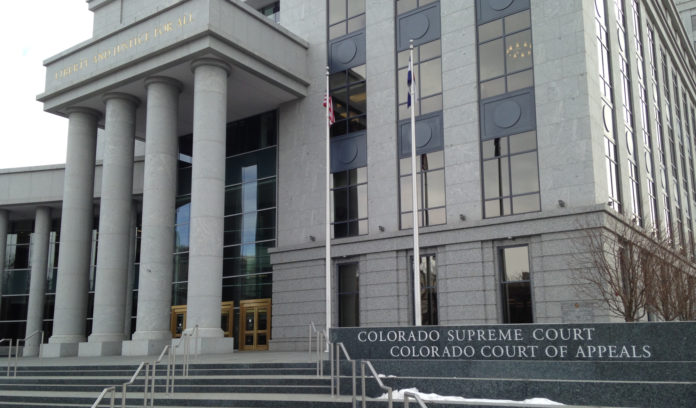

The Colorado Supreme Court will hear oral arguments May 2 and 4 in six cases including ones connected to bail in a capital offense case and an animal cruelty case.
People v. Smith
According to a joint answer brief filed by the Colorado Court of Appeals and Adams County District Court, Jerrelle Smith was arrested in 2022 and charged with first-degree murder. At an October 2022 preliminary hearing, Smith asked the district court to set bail.
According to Colorado’s Constitution, all defendants are eligible for bail unless they are charged with a capital offense and “proof is evident or presumption is great.” Smith argued since the death penalty was abolished in Colorado, first-degree murder wasn’t a capital offense where bail could be denied.
The matter reconvened a few days later where the district court agreed some of Smith’s argument was supported, writing that historically a capital crime means one is subject to death.
The district court, however, concluded it was bound to follow the Colorado Supreme Court precedent. The district court held first-degree murder remained a capital offense for purposes of bail.
According to the joint answer brief, the state high court has held the Colorado Constitution classifies murder as an offense where bail could be withheld, even if the defendant couldn’t receive the death penalty.
Smith petitioned the Colorado Court of Appeals under Colorado Revised Statute 16-4-204 to review the district court’s order denying bail. Prosecutors responded to the petition contending 16-4-204 doesn’t allow appellate review of a district court’s order denying bail and, even if it did, the district court correctly found Smith was charged with a capital offense. The court of appeals dismissed the petition.
Smith petitioned the Colorado Supreme Court to review the district court’s determination and the appeals court order dismissing the appeal. The court granted the petition.
Questions before the Colorado Supreme Court include whether following the repeal of the death penalty in the state, a class 1 felony related to conduct occurring on or after July 1, 2020, constitutes a capital offense. A bill passed in 2020 repealed the death penalty in Colorado for offenses charged on or after July 1, 2020.
Other questions include whether the Colorado Court of Appeals erred in dismissing Smith’s appeal and whether, following the repeal of the death penalty, those charged with a class 1 felony have a right to bail.
Smith’s case will be heard at 9:15 a.m. May 4 at Colorado Mesa University in Grand Junction, as part of the Courts in the Community program. The program serves as an educational outreach opportunity that was started in 1986.
Caswell v. People
The Colorado Supreme Court will also hear an animal cruelty case.
According to the August 2021 Colorado Court of Appeals opinion, investigators from the Lincoln County Sheriff’s Office seized 29 dogs, four cats, five birds and five horses from Constance Caswell’s property after observing multiple issues, including concerning the animals’ nutrition.
Caswell was charged with 43 counts of cruelty to animals and was convicted on all counts by a jury. Caswell conceded at sentencing she was previously convicted of cruelty to animals and, during sentencing, the trial court treated Caswell’s prior conviction as a sentence enhancer instead of as an element of the offense of cruelty to animals that a jury must find beyond a reasonable doubt. The court’s finding involving the previous conviction elevated the misdemeanor offenses to felonies.
On appeal Caswell contended the trial court erred by entering felony convictions, even though the prosecution didn’t prove beyond a reasonable doubt to a jury that Caswell had a prior conviction for cruelty to animals.
The appeals court concluded the statutory language indicated the legislature clearly intended prior convictions under the animal cruelty statute to constitute a penalty enhancement so a prior conviction doesn’t need to be found by a jury. The appeals court affirmed the judgment.
One question before the Colorado Supreme Court is whether the prior-conviction provision of the animal cruelty statute is a sentence enhancer or element of the offense. Another question before the high court is whether a fact that transforms a misdemeanor to a felony needs to be found by a jury beyond a reasonable doubt.
Other Cases
Another case before the Colorado Supreme Court in May focuses on water access. It centers around a fisherman wanting access to a stretch of the Arkansas River.
Another major case before the high court is associated with a reverse keyword warrant and whether it violates the Fourth Amendment of the U.S. Constitution and the Colorado Constitution.
To find out more about the Colorado Supreme Court’s oral arguments for May, click here.

